More than a century later, people of three countries yesterday remembered their ancestors who fought on the opposite sides in a World War I campaign that changed the fate of Turkey.
Hundreds of people from Australia and New Zealand attended a dawn service in northwestern Turkey's Çanakkale, the stage of the famous Gallipoli campaign in 1915.
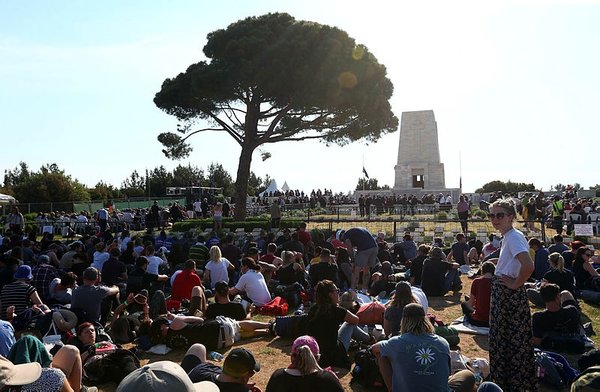
The event marked the landing of the Allied forces on the city's Aegean coast to capture a key waterway to Istanbul, then-capital of the Ottoman Empire. Though the empire was in its waning days and its war-weary army was far from its glory days, Ottoman forces succeeded in fending off the landing, albeit at the cost of thousands of lives. Australia and New Zealand Army Corps (ANZAC) was at the forefront of the efforts to capture Gallipoli peninsula.
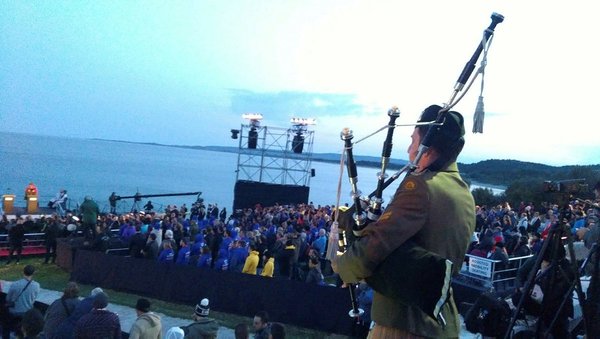
As about 1,300 Australians and New Zealanders, joined by high-ranking officials of their countries, solemnly watched the sunrise commemoration of the beginning of the eight-month campaign, thousands of Turkish youth gathered across Turkey and at a cemetery for martyrs in Çanakkale for an annual march of remembrance.
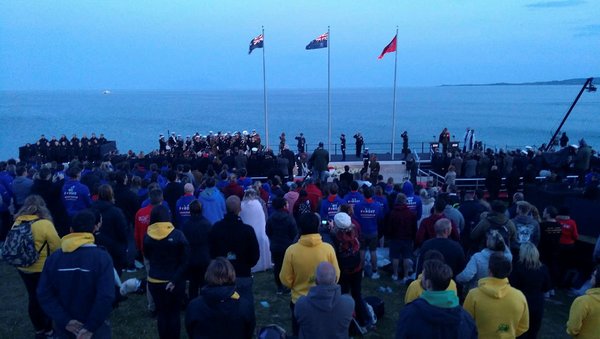
Spending the preceding night at the commemoration site in sleeping bags and blankets, New Zealander and Australian visitors watched documentaries on screens set up on the battlefield.
New Zealand Governor-General Patsy Reddy, Australian Home Affairs Minister Peter Dutton, as well as British Minister for Europe and the Americas Alan Duncan, were among those who attended the service while a local official represented Turkey.
After speeches by the officials, some of the letters sent by fallen ANZAC soldiers to their families were read. People laid wreaths and observed a minute of silence before the national anthems of three countries were played to wrap up the event.
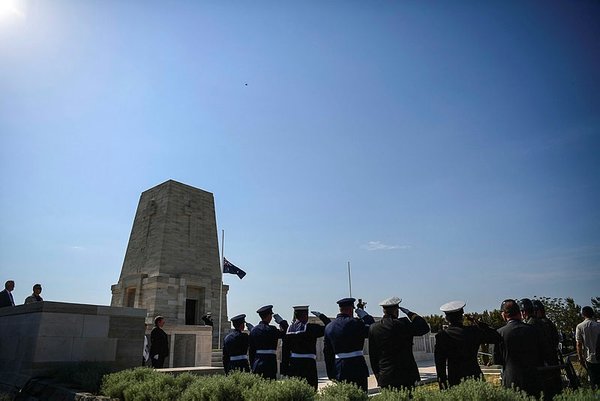
"It is humbling to stand among our New Zealand and Turkish friends and reflect on the service and sacrifice of tens of thousands of people on both sides of the campaign who lost their lives," Dutton said in a speech.
"As we honor our forebears and their service to our countries, we affirm our commitment to work together to achieve and maintain collective security and peace," Governor-General Reddy said in her address to the crowd gathered for the dawn service.
Speaking to Anadolu Agency (AA), Andrew Dalton from Australia said that this was his first visit to Çanakkale. The 55-year-old psychologist said he was pleased to be at the dawn ceremony to commemorate his ancestors.
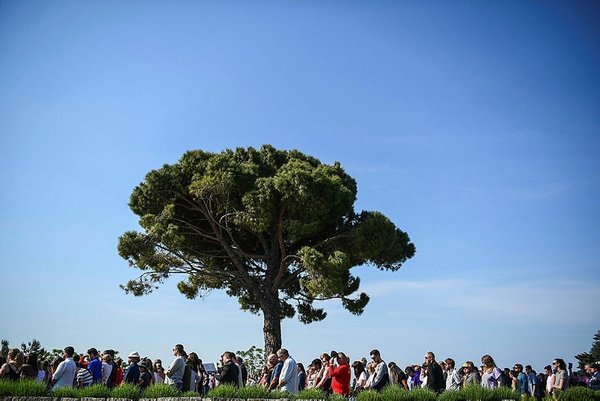
"It is a wonderful place here. I would like to thank Turkey for letting us experience this. As Australia, New Zealand and Turkey, we are all here together," he said.
The dawn service at Anzac Cove in Çanakkale was followed by another service at Lone Pine Memorial, where visitors paid respects at the graves of fallen soldiers. Some 10,000 Anzac soldiers lost their lives in the battle after landings.
In another corner of Çanakkale, crowds of youth marched 5 kilometers to a martyrs' cemetery while "Remembering the 57th Regiment March," paying tribute to the legendary military unit whose heroic actions helped Ottomans stave off the Allied forces.
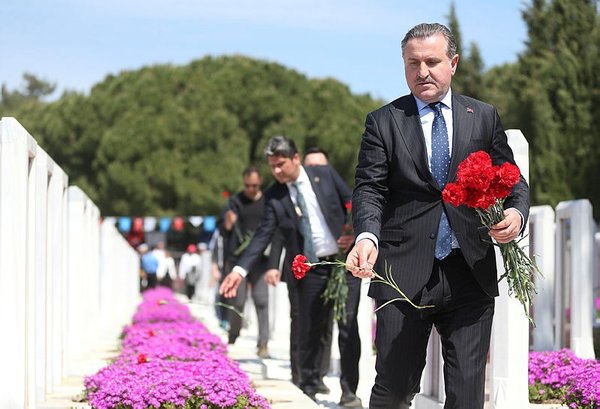
The march, organized by Youth and Sports Ministry, were simultaneously held in Turkey's 81 provinces as masses marched to local cemeteries for soldiers and civilians, who died fighting to defend the country. Crowds in Çanakkale followed the same route that the regiment took 103 years ago, from a rural area to Conkbayırı, where the Allied and Ottomans fought.
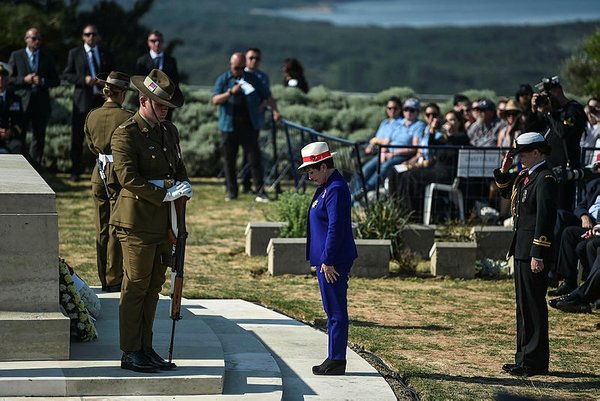
Like the Anzac dawn service, the march started in the early hours yesterday. Participants were served a crude soup, the only meal the Ottoman troops had before charging against the enemy troops. Along with Turks, youth from Lebanon, Egypt, Syria, Palestinian territories, Sudan, Yemen, Afghanistan and Iraq also attended the march that also remembered volunteers from former Ottoman dominions.
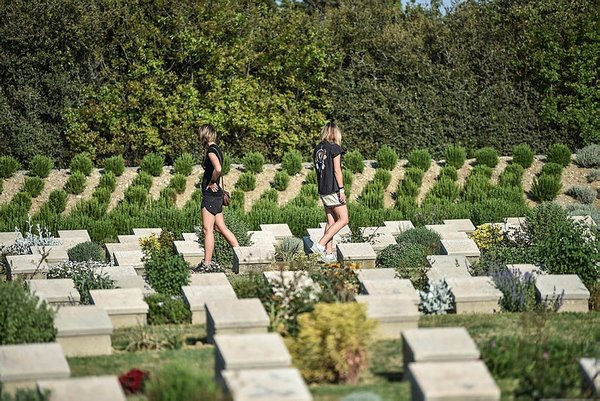
The 57th regiment was key in the last Ottoman victory in World War I. Lt. Col. Mustafa Kemal, who would later establish the Republic of Turkey after the collapse of the empire, was the commander of 19th division which controlled the regiment. It was there the commander, who would later be given the last name of Atatürk (father of Turks) shone.
As military units were undecided whether to respond to the Allied campaign, anxiously awaiting orders from their superiors, Mustafa Kemal did not wait for orders and moved his men to the front to face superior forces of the Allied troops.
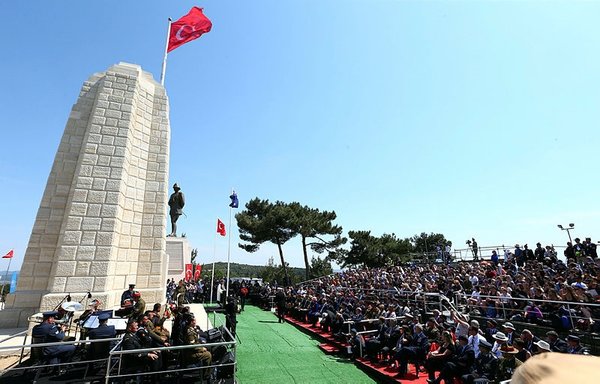
"I do not order you to attack, I order you to die" was his famous order to his troops that day. The regiment lost more than 1,800 soldiers but is praised for not giving up despite all its three commanders replacing each other after each was killed in action.